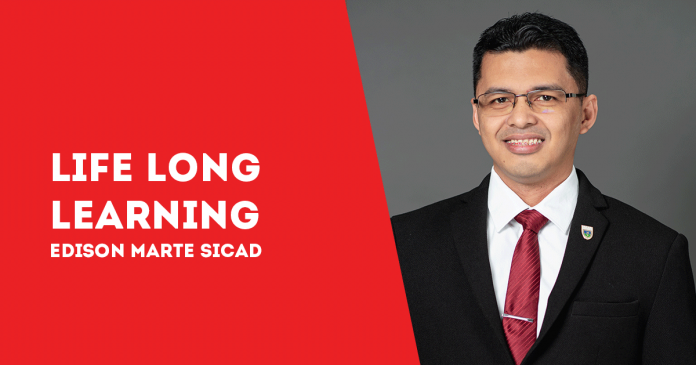
BY EDISON MARTE SICAD
I HEARD this saying from Dan Peña: a businessman hated by some teenagers and university students because of his antics and take-no-prisoners attitude in making money and in life in general. A self-proclaimed self-made man, there are those who sought for his guidance to become successful, “money-rich” successful that is.
Why do some people hate him? He is point-blank about his highly opinionated and materialistic view of life (He even said that global warming or climate change is a hoax). He doesn’t mind irritating people with his statements. And he doesn’t give a damn if people will like him or hate him.
He would insult the youth of today for being too soft, self-entitled, emotionally cumbersome, full of self-pity, and governed by blaming-others mentality.
He would call some people Snowflakes: the whiners and complainers whose self-worth is dependent on social media activities; weaklings who easily melt under pressure; influencers who became expert in instant popular content with no intrinsic value and are very good in feigning depression to gain more attention to escape personal responsibility and social accountability.
Why do some people follow him? Because he can somehow inspire them to believe that they can realize their potential—to be filthy rich is one of them. He would say: “Money is not a problem; it is the solution. If you are fearless, then you are limitless.”
Moreover, Dan Peña believes that we need more “manly” man to counteract the waves of wokeness weaponized by showbiz politics. And to be manly means having the guts to realized one’s potential.
But the question now is, “Who defines your potential?”
Must students always aim for the highest award? Should employers continuously expect the best results? Wouldn’t it be better to just live within our means? How do we know how much we can do?
The Elephant Rope (a retelling; real author is unknown): This story emphasizes the reality of self-created limiting beliefs.
One day, a tourist visited an elephant camp. He noticed that the elephants, despite being huge, were only held by a small piece of rope tied to one of their legs. It was very obvious—and dangerous even—that the elephants can easily break the rope.
However, the elephants did nothing to escape. Maybe they were already trained to be docile. Still, out of curiosity, the tourist asked the trainer, “Why aren’t the elephants breaking the rope to escape?”
The trainer replied:
“When they were very young, we use the same small size of rope to tie them. Since they were still small at that time, the rope was strong enough to hold them. As they grow up, they still believe that the rope can still hold them; so, they never try to break it and escape the camp. The only reason that the elephants weren’t breaking the rope and escaping from the camp was that over time they adopted the belief that they couldn’t break the rope.“
In other words, we set our own limits; we define our own possibilities. There is potential in each of us, uniquely endowed that must be personally cultivated and not just socially created.
I often notice this in a classroom setting. Some students were “trained and conditioned” by their past performance: to believe that they cannot get an award because in the previous years they never had one. While there are those who were blinded by awards: they will cheat their way into it because high grades became their only sense of identity.
To find and fulfill one’s potential then is not only a matter of personal choice, but more importantly, it is about believing that character matters. And this is where the parents play a crucial role.
Instead of being grade conscious, parents must be character conscious. It means that the children must not only learn what is the right answer. More importantly, children must learn how to cope with mistakes or be proactive when they have wrong answers.
Teenagers must not only experience happiness that celebration and recognition bring because of accomplishments; they must also learn how to deal with frustrations and setbacks because of failures: real failures like being heartbroken, failing a test, being criticized, or being rejected by others.
And this may also be applicable to us grownups who, like the elephants in the story, had been made to believe that we cannot improve and do something extraordinary.
IN CONCLUSION, like Sisyphus, we continue to push again and again that rock upwards without losing our resolve.
Sometimes the question we must be ready to answer is not “what will you do after succeeding” rather “what will you do after failing?“
As the saying goes, “I’d rather feel the pain of failure for trying, than feel the pain of regret for failing to try.” /PN



